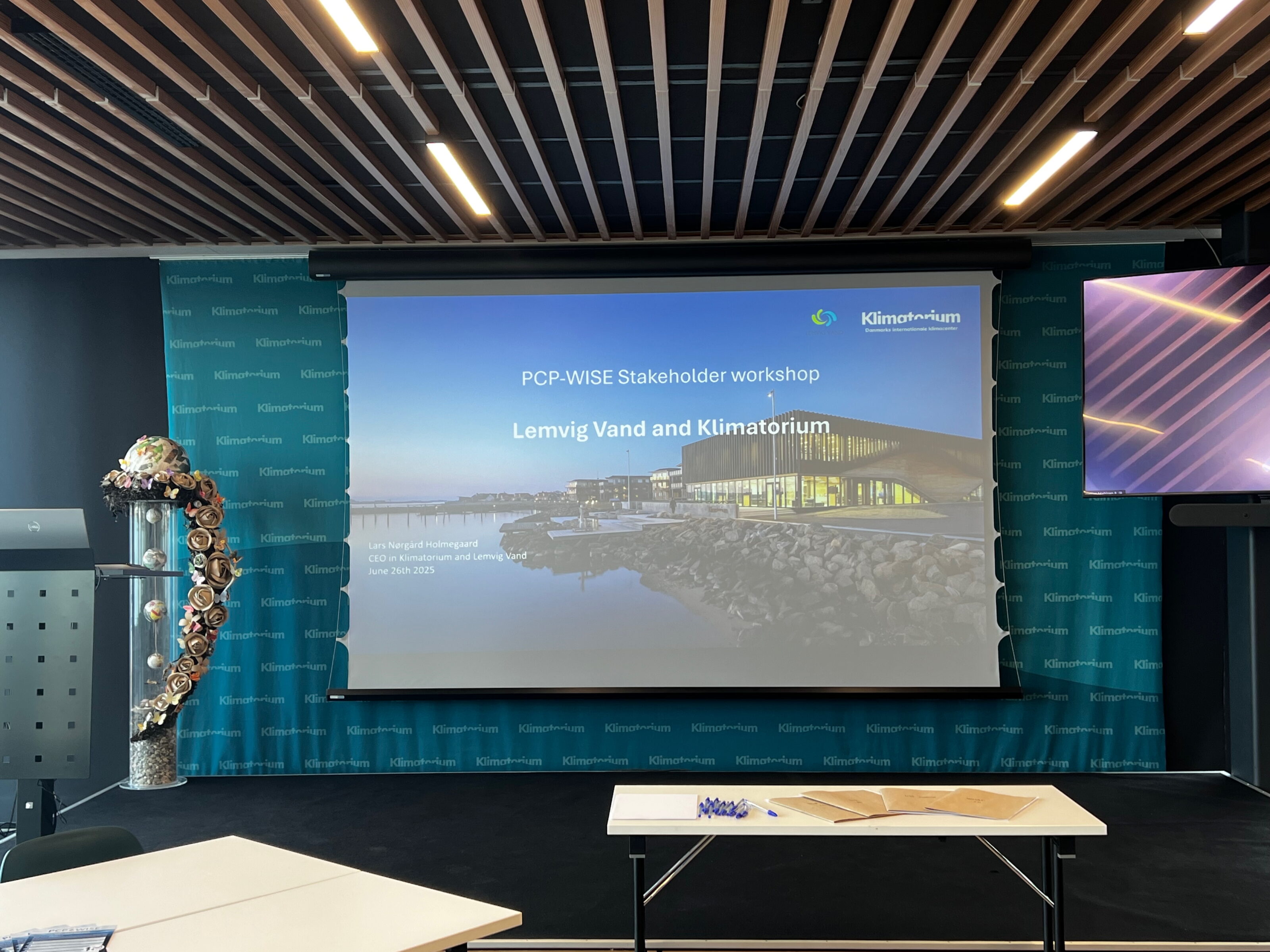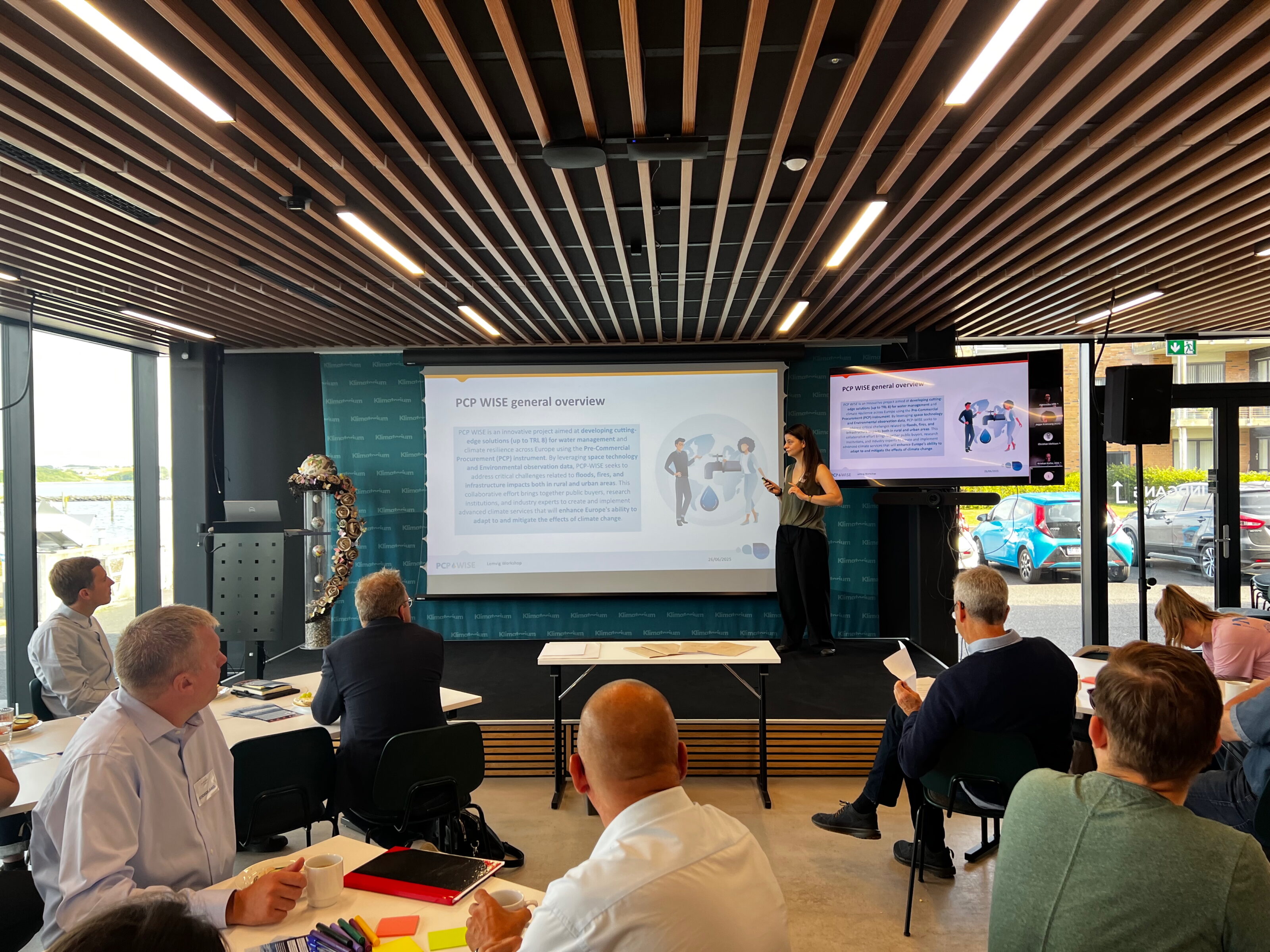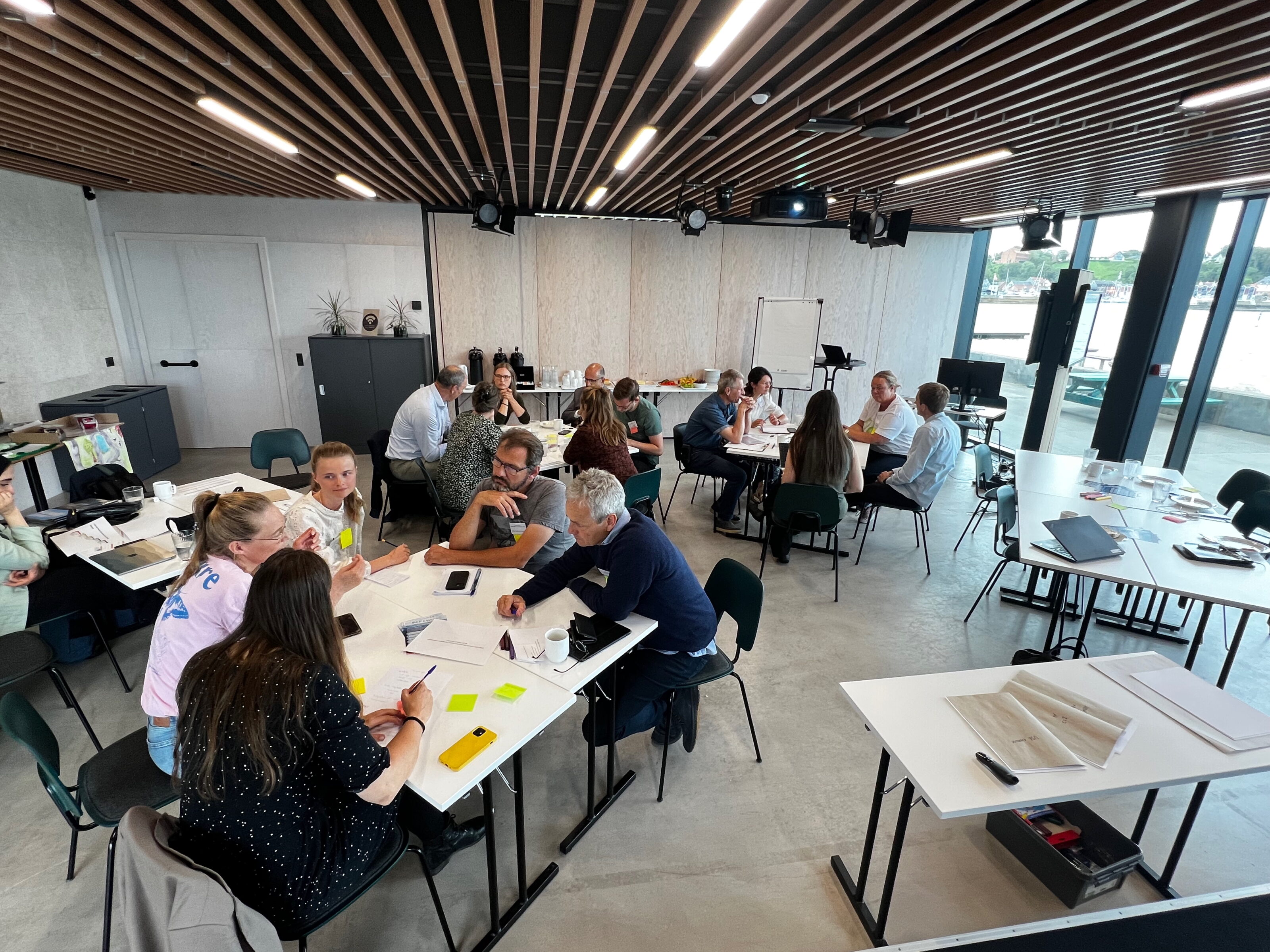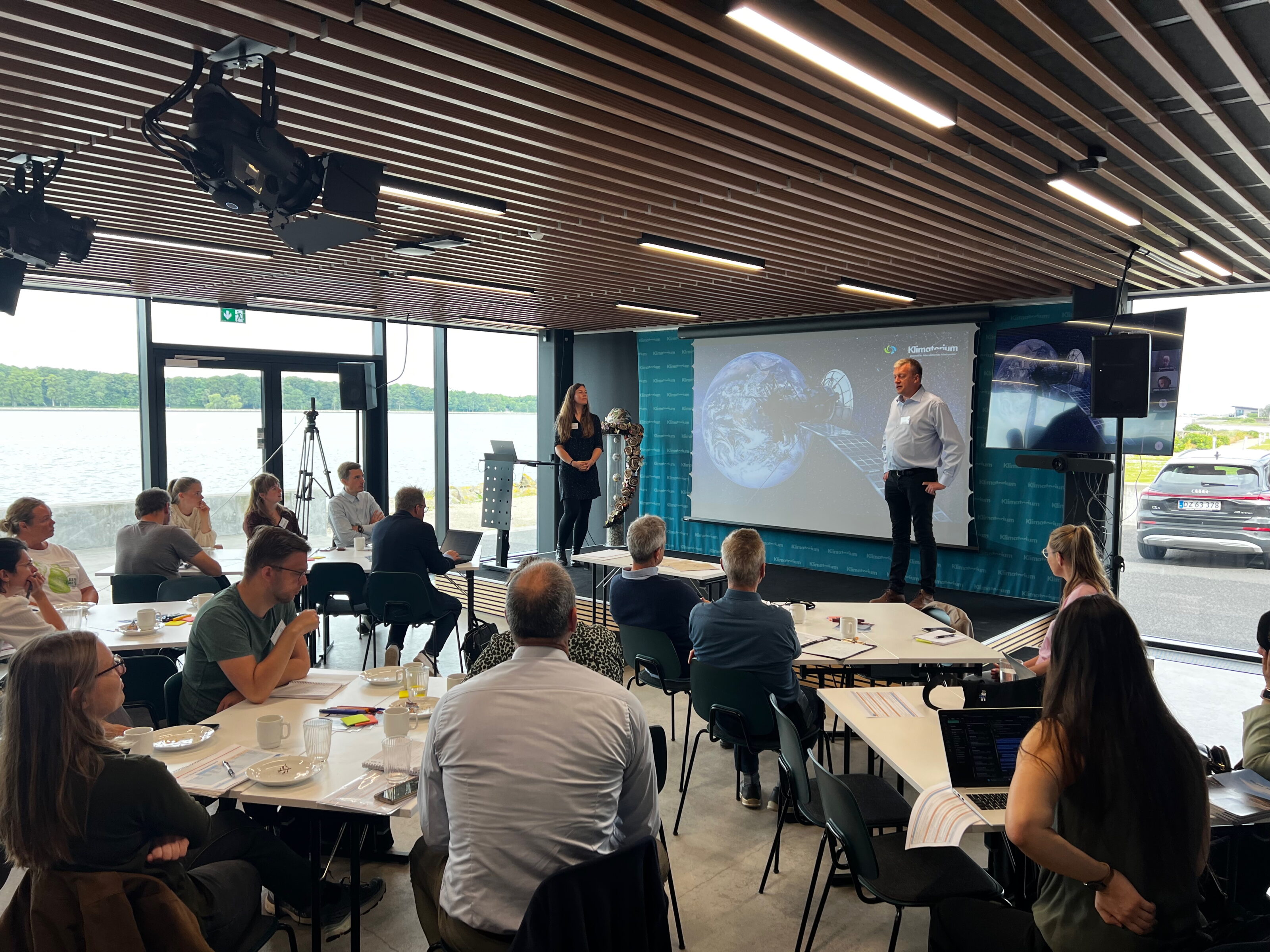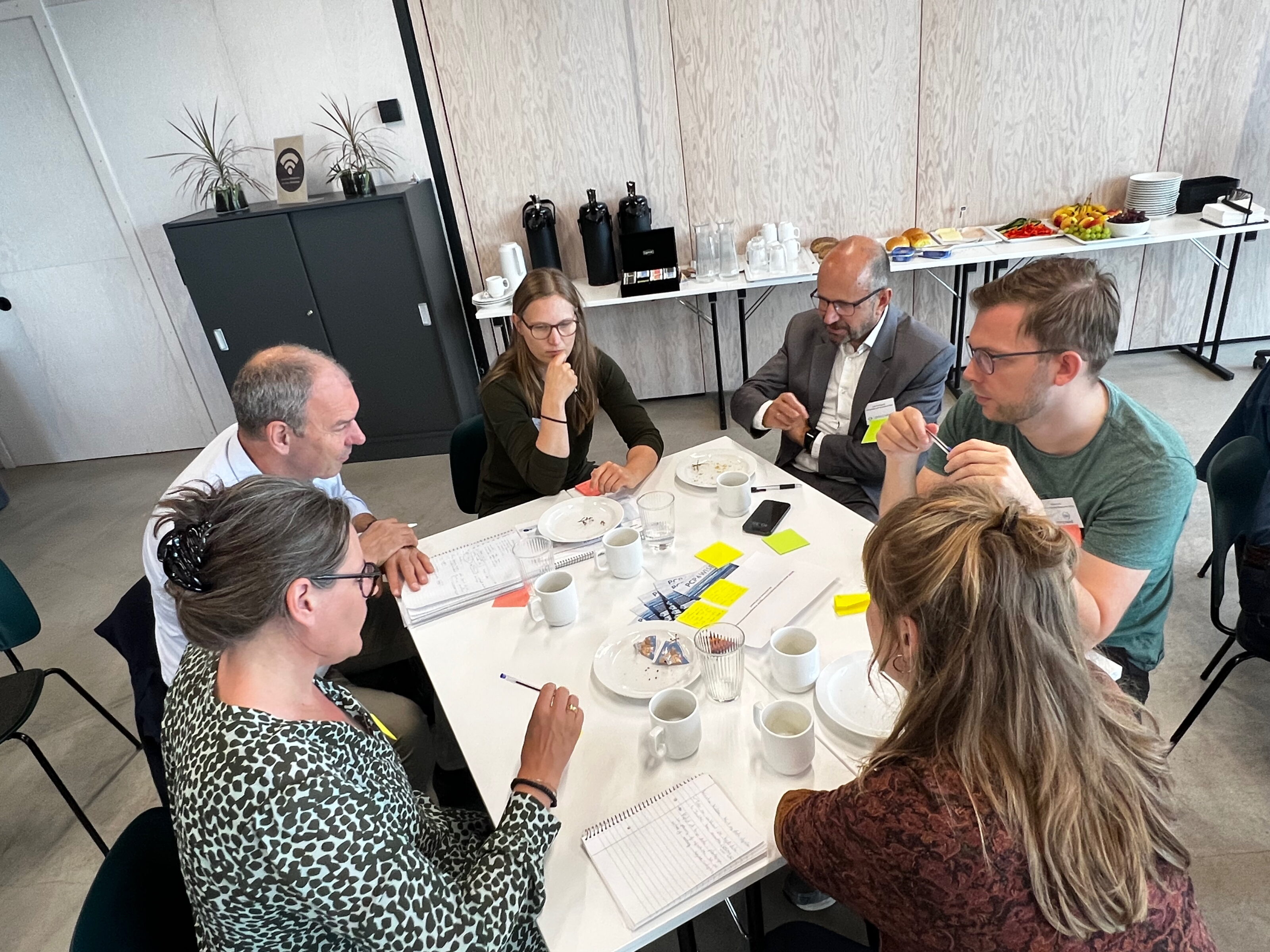As part of our ongoing series of five in-person workshops across Europe, PCP WISE continued its journey with an engaging and insightful stop on June 26, in Lemvig, Denmark—hosted by Klimatorium, the Danish climate adaptation center.
📍 The workshop brought together a dynamic mix of stakeholders, including representatives from Fjordlanden Farmers’ Union, SEGES Innovation, Lemvig Water Agency, the Danish Nature Agency, and the local port authority. Their expertise and open dialogue made for a highly productive session that shed light on pressing local challenges—and opportunities—for future-proofing water and climate resilience.
👉 Several core themes emerged throughout the discussions, highlighting both systemic barriers and areas for innovation:
🔹 Local Risk Realities: Stakeholders underscored the dual pressures of subsidence and flooding. As one participant put it:
“Subsidence and flooding in combination gives us some headaches.”
🔹 Data Gaps Despite Abundance: While data is available, it’s often siloed, hard to interpret, and difficult to apply in local contexts—especially for non-experts.
“Water doesn’t know any borderlines—therefore we have to work together with farmers and industry,” another stakeholder noted, emphasizing the need for cross-sector collaboration.
🔹 Model Limitations: Existing models are helpful but frequently fall short in future forecasting and local-scale accuracy—highlighting a need for more tailored and forward-looking tools.
🔹 Infrastructure Stress: Participants pointed to infrastructure vulnerabilities—from groundwater threats to outdated systems—as a key area of concern.
🔹 Sensor + Communication Disconnect: Although sensor networks exist, their coverage is uneven, and the data they collect isn’t always well integrated or used strategically. Improved communication and translation of technical data for wider audiences emerged as a strong need.
💬 This workshop—like others in the series—reinforces the importance of grounding innovation in real-world needs. The inputs will directly inform both our digitalisation mapping efforts and the evolution of the PCP tender’s technical specifications.
🙏 A heartfelt thank you to our hosts at Klimatorium, and to all participants for their valuable insights and collaboration. Your contributions are critical as we co-design more effective, user-driven climate services.
📢 Next stop: stay tuned as we head to the next site visit on July 2, in Catalunya, Spain, continuing to engage with local stakeholders across Europe.
